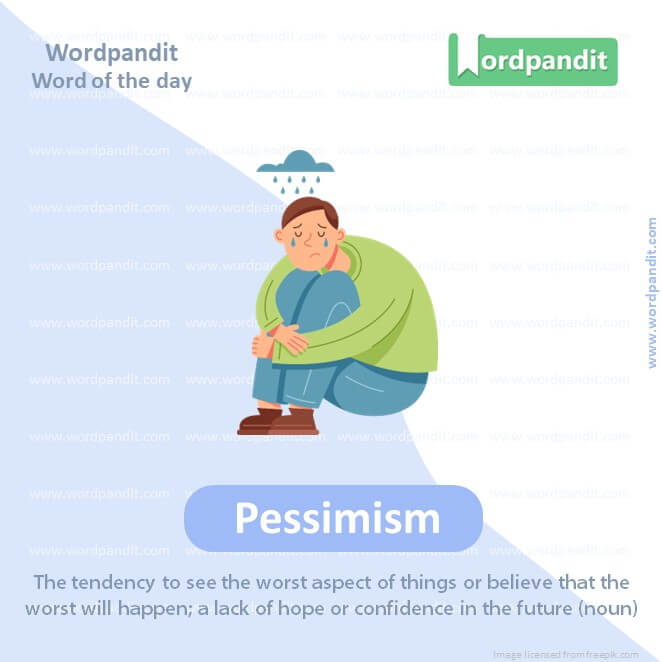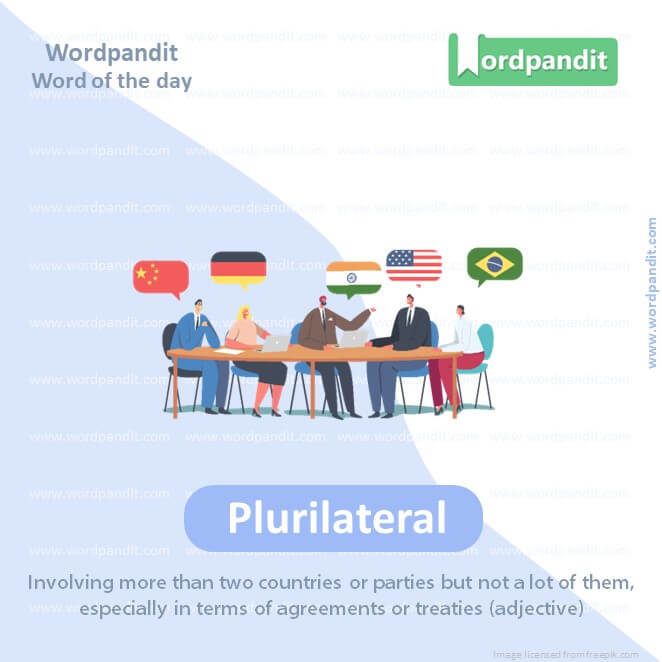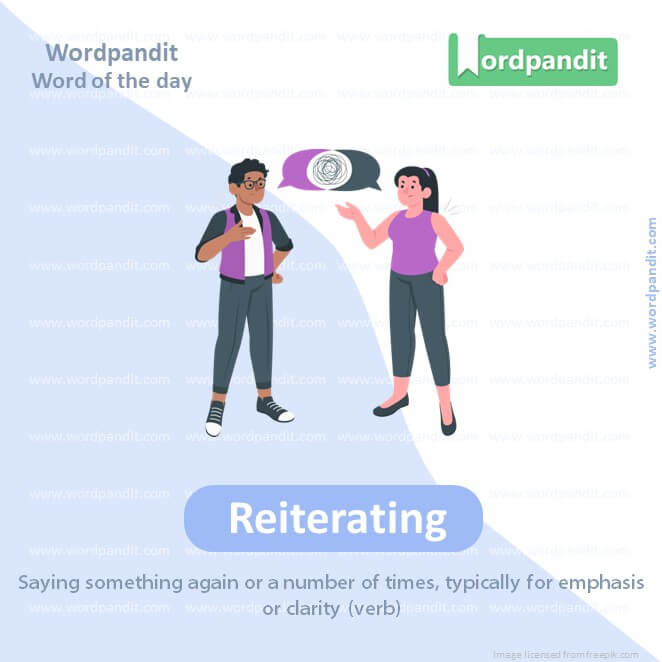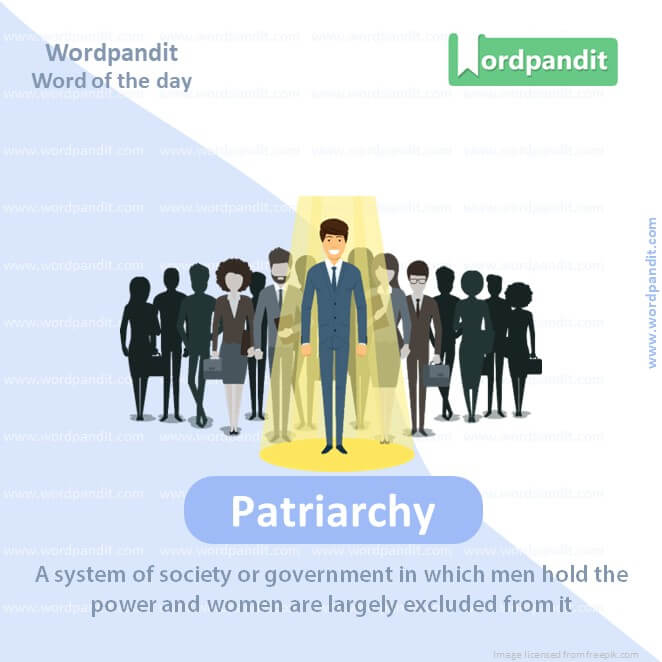Daily Vocabulary Words: List of Daily Used Words in Leading Indian Newspapers
Hi there. Welcome to this special section @ Wordpandit. Our endeavour here is straightforward: highlighting daily vocabulary words that you would come across in leading newspapers in the country. We have included the following newspapers in our selection:
• The Times of India
• The Economic Times
• Hindustan Times
• Mint
• Indian Express
We are putting in extensive work to develop your vocabulary. All you have to do is be regular with this section and check out this post daily. This is your repository of commonly used words; essentially, we are posting a list of daily used words. Hence, this has significant practical application as it teaches you words that are commonly used in leading publications mentioned above.
Visit the website daily to learn words from leading Indian newspapers.

WORD-1: Pessimism
CONTEXT: 13th Ministerial Conference was unable to lift the air of pessimism around the future of the multilateral trading system
SOURCE: Hindustan times
Explanatory Paragraph: Imagine you have a day where you think everything that can go wrong will go wrong. Like if you think it’s going to rain during your soccer game, and you won’t score any goals, and maybe even think you’ll lose your ball. Pessimism is when your brain keeps looking at the sad or bad side of things, expecting things not to go well.
Meaning: The tendency to see the worst aspect of things or believe that the worst will happen; a lack of hope or confidence in the future (noun).
Pronunciation: PES-i-miz-um
Synonyms: Negativity, Gloomy, Cynicism, Despondency, Hopelessness, Skepticism
Usage Examples:
1. His pessimism made it hard for him to try new things.
2. The team’s loss last week has spread pessimism among the fans.
3. Despite the challenges, she refused to let pessimism affect her goals.
4. The economic forecast was met with pessimism by investors.

WORD-2: Plurilateral
CONTEXT: The agenda for the ministerial conference had two proposed plurilateral agreements being negotiated on new issues, namely, investment facilitation and e-commerce.
SOURCE: Hindustan times
Explanatory Paragraph: Imagine you and some of your friends decide to build a big sandcastle together, but not everyone in the playground wants to join. Plurilateral is a fancy word that’s a bit like when a group of friends (but not all) decide to do something together. It’s like making a special club where only some people join to do a specific activity or project.
Meaning: Involving more than two countries or parties but not a lot of them, especially in terms of agreements or treaties (adjective).
Pronunciation: ploor-uh-LAT-uh-rul
Synonyms: Multilateral (though less broad), Selective, Exclusive, Collaborative, Joint, Cooperative
Usage Examples:
1. The plurilateral agreement was signed by 12 countries.
2. They are working on a plurilateral trade deal.
3. The plurilateral discussions aimed at solving regional issues.
4. Environmental protection is often addressed through plurilateral agreements.
WORD-3: Tremendous
CONTEXT: the one on investment facilitation that was being pushed by China, have argued that they would bring tremendous benefits to developing countries.
SOURCE: Hindustan times
Explanatory Paragraph: Imagine you see the biggest, tallest ice cream sundae ever, way bigger than you could eat, and it makes you say “WOW!” That feeling of amazement because something is so big, so good, or so much is what tremendous is all about. It’s like saying something is really, really awesome or huge.
Meaning: Very great in amount, scale, or intensity (adjective).
Pronunciation: truh-MEN-duhs
Synonyms: Enormous, Huge, Fantastic, Colossal, Massive, Extraordinary
Usage Examples:
1. She felt a tremendous sense of relief after finishing her project.
2. The earthquake caused tremendous damage.
3. He had a tremendous appetite and ate everything on his plate.
4. The support from the community was tremendous.

WORD-4: Reiterating
CONTEXT: the Ministerial Declaration taking note of this critical issue and reiterating that a permanent solution would be found in a time-bound manner to address the problems that the government could face in implementing its recent decision to provide free food to 810 million people until 2028.
SOURCE: Hindustan times
Explanatory Paragraph: Imagine you’re telling your friend the rules of a new game, but they don’t understand it the first time. So, you say it again, maybe using different words or explaining in another way to help them get it. Reiterating is just a fancy way of saying “saying something again” so that everyone understands it better.
Meaning: Saying something again or a number of times, typically for emphasis or clarity (verb).
Pronunciation: ree-IT-uh-ray-ting
Synonyms: Repeating, Restating, Recapitulating, Echoing, Underscoring, Emphasizing
Usage Examples:
1. The teacher kept reiterating the importance of reading every day.
2. He reiterating his point during the meeting to make sure everyone understood.
3. The safety instructions were reiterating before the trip started.
4. She reiterating her apology, hoping to make amends.
WORD-5: Procuring
CONTEXT: The subsidies discipline under the AoA has a fallacious methodology for calculating the level of government support to agriculture, as per which India’s budgetary outlays for procuring food grains and the cost of distributing the stocked grains through the PDS exceed the AoA’s subsidy threshold.
SOURCE: Hindustan times
Explanatory Paragraph: Imagine you really want a specific toy, but you can’t find it anywhere. So, your parents go to different stores, look online, and ask friends if they know where to find it. When they finally get the toy for you, they have procured it. Procuring means getting something that might be hard to find or need a lot of effort to get.
Meaning: Obtaining something, especially with care or effort (verb).
Pronunciation: proh-KYUR-ing
Synonyms: Obtaining, Acquiring, Securing, Fetching, Attaining, Garnering
Usage Examples:
1. She was responsible for procuring the materials for the project.
2. Procuring tickets to the sold-out concert was no easy feat.
3. The museum was successful in procuring the rare artifact.
4. Efforts were made in procuring a suitable venue for the event.
WORD-6: Sustaining
CONTEXT: The Agreement on Fisheries Subsidies was adopted in 2022 to address the critical issue of sustaining fish stocks by restricting subsidies granted to the fishing industry.
SOURCE: Hindustan times
Explanatory Paragraph: Imagine you’re holding a balloon tightly so it doesn’t fly away. You need to keep holding it if you want it to stay with you. Sustaining is kind of like that but with anything you want to keep going. Like if you keep watering a plant to make sure it stays alive and grows, you’re sustaining it. It means keeping something going over time.
Meaning: Strengthening or supporting physically or mentally; maintaining at a certain rate or level (verb).
Pronunciation: suh-STAIN-ing
Synonyms: Maintaining, Supporting, Upholding, Continuing, Preserving, Nourishing
Usage Examples:
1. Sustaining interest in the project was challenging.
2. The charity is focused on sustaining communities in need.
3. Sustaining effort is required to achieve long-term goals.
4. The ecosystem is capable of sustaining a wide variety of species.
WORD-7: Decision
CONTEXT: MC13 was unable to lift the air of pessimism around the future of the multilateral trading system also because no decision was taken to mend WTO’s broken dispute settlement mechanism (DSM).
SOURCE: Hindustan times
Explanatory Paragraph: Think about when you’re choosing between chocolate and vanilla ice cream. You look at both, think about which one you really want, and then pick one. Making a decision is just like that – it’s when you think about your choices and then choose what you think is the best one.
Meaning: The act of making a choice or coming to a conclusion (noun).
Pronunciation: dih-SIZH-uhn
Synonyms: Choice, Conclusion, Determination, Resolution, Verdict, Judgment
Usage Examples:
1. After much thought, she made the decision to move to a new city.
2. The decision to close the school was made due to the snowstorm.
3. He regretted his decision as soon as he made it.
4. The jury’s decision was unanimous, finding the defendant not guilty.

WORD-8: Patriarchy
CONTEXT: Just like the term feminism, patriarchy is an emotive word, but we look at both through the lens of fairness and equality, not through the lens of men vs women.
SOURCE: Hindustan times
Explanatory Paragraph: Imagine a family where the dad or the men make all the big decisions, and they’re the ones who are mostly in charge. Now, think about that idea but for a whole community or even a country, where men have most of the power and make most of the rules. Patriarchy is when societies work like this, with men holding the main positions of power and leadership.
Meaning: A system of society or government in which men hold the power and women are largely excluded from it (noun).
Pronunciation: PAY-tree-ar-kee
Synonyms: Male dominance, Androcracy, Masculinism, Man’s world, Male governance
Usage Examples:
1. The novel explores themes of patriarchy and power.
2. Movements for gender equality challenge the traditional patriarchy.
3. Patriarchy has shaped historical and social structures.
4. Efforts to dismantle patriarchy include promoting women’s rights and leadership.

WORD-9: Stifled
CONTEXT: This refers to situations wherein, in the guise of compassion, women’s ambitions are stifled by those in more powerful positions.
SOURCE: Hindustan times
Explanatory Paragraph: Imagine you’re trying to giggle quietly during a game of hide and seek so no one hears you. You cover your mouth and try to keep the laughter inside. Stifled is when you stop something from coming out or happening freely, like trying to keep your giggles quiet or not letting your little brother say something by interrupting him.
Meaning: Restrained or stopped oneself from acting or expressing oneself freely (verb).
Pronunciation: STY-fuld
Synonyms: Suppressed, Smothered, Quashed, Thwarted, Curbed, Muffled
Usage Examples:
1. She stifled a yawn during the long lecture.
2. The government tried to stifle dissent by censoring the press.
3. His creativity was stifled by the strict rules.
4. Efforts to stifle the outbreak were successful.
WORD-10; Floundered
CONTEXT The Maoist-NC coalition that collapsed just the other day floundered for several reasons.
SOURCE: Hindustan times
Explanatory Paragraph: Imagine you’re trying to walk through a really muddy puddle, and your feet keep slipping and you can’t seem to get across easily. You’re moving, but it’s super hard to make progress and you might even fall. Floundered is when someone is struggling like that but not just in mud – it can be with anything they’re trying to do, like solving a tough math problem or learning to ride a bike. It means having a hard time moving forward or succeeding.
Meaning: Struggle or stagger clumsily in mud or water; struggle mentally; show or feel great confusion (verb).
Pronunciation: FLOUN-derd
Synonyms: Struggle, Stumble, Falter, Bumble, Lurch, Stagger
Usage Examples:
1. He floundered in his attempt to explain his absence.
2. The company floundered after the departure of its CEO.
3. She floundered through her presentation, forgetting key points.
4. Despite floundering early on, they eventually found their way.
Vocabulary Daily Use
In the fascinating world of language learning, we often concentrate on taking giant leaps, but the real magic lies in the small steps of ‘vocabulary daily use’. These frequently used words and phrases form the backbone of practical communication and understanding. Therefore, mastering ‘vocabulary daily use’ is a crucial element in achieving language fluency.
To effectively learn ‘vocabulary daily use’, one needs to venture beyond the traditional textbook resources. The real essence of these words unveils itself in everyday exposure and interactions. Engaging with a variety of material like novels, magazines, newspapers, podcasts, films and digital content deepens the understanding of ‘vocabulary daily use’. Immersion in these contexts yield natural, everyday language that bridges the gap between the classroom and the real world.
The journey of mastering ‘vocabulary daily use’ necessitates the integration of innovative memory techniques. Flashcards and the Leitner System aid in embedding these words into your long-term memory by promoting active recall. Additionally, the use of mnemonic devices, which allow you to associate ‘vocabulary daily use’ with personal and familiar narratives, can enhance your ability to remember and recall these words.
Moreover, it’s important to remember that ‘vocabulary daily use’ isn’t just about comprehension- it’s about practice and active usage. Incorporate these words in your day-to-day communication and social interactions. This not only solidifies your understanding but also accelerates learning and internalization of ‘vocabulary daily use’.
In a nutshell, mastering ‘vocabulary daily use’ is a continual process that demands exposure, creative learning strategies and assertive practice. The commingling of these tactics brews the perfect formula that allows learners to seamlessly integrate ‘vocabulary daily use’ into their linguistic repertoire. And with that, they can navigate the nuances of language with confidence and ease.





